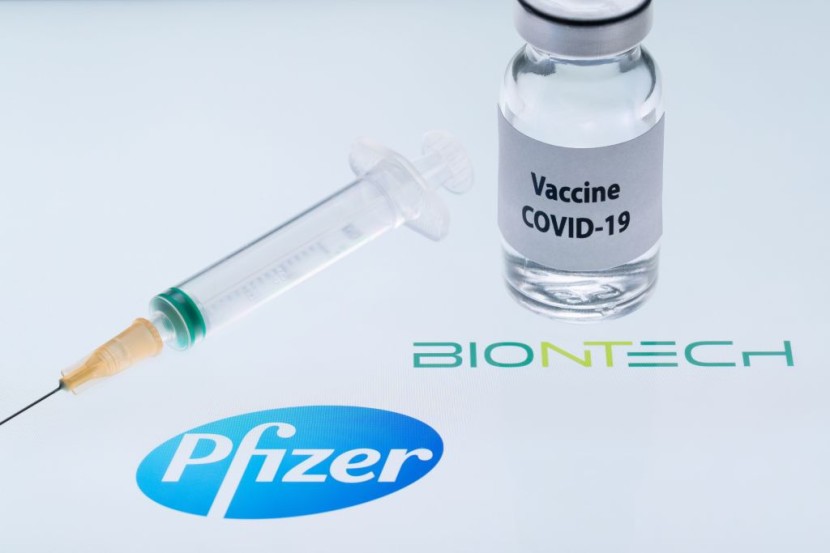The vaccine's effectiveness dropped by 6% every two months, according to the research, indicating that it may fall below 50 percent in 18 months.

Pfizer-BioNTech COVID-19 Vaccine's Efficacy Drops Every Two Months
In a recently published article in The Wall Street Journal, a new data released by the companies shows that protection against symptomatic COVID-19 from Pfizer Inc., and partner BioNTech SE's vaccination decreased over time but remained high after six months.
The vaccine's effectiveness in preventing symptomatic illness decreased every two months, from 96 percent after two months to 84 percent after six months, a reduction that may add urgency to Pfizer's drive to give an extra dosage to maintain protection.
The pharmaceutical companies said that the vaccination was 91 percent effective in avoiding symptomatic COVID-19 over the first six months, which is consistent with a study published earlier this year, according to a published article in CNBC News.
Read Also : Sinopharm Efficacy Rate: China's COVID-19 Vaccine Gets WHO Approval for Adult Emergency Use
Pfizer and BioNTech Are Now Discussing a Booster Shot
Booster shots have also been proposed as a means of ensuring more protection against the virus. On Wednesday, Pfizer and BioNTech announced that the third dose of their COVID-19 vaccine may "significantly" improve protection against the new, highly transmissible Delta variant.
New findings reveal that individuals aged 18 to 55 years old who get a third dosage of the COVID-19 vaccination have antibody levels against the Delta version that are more than five times higher than those who receive just a second dose. Meanwhile, antibodies against the Delta variant are more than 11-fold higher in individuals aged 65 to 85 years old after a third injection than after only a second, according to a published article in the U.S. News.
During a Pfizer earnings call on Wednesday, Dr. Mikael Dolsten, the company's global research, development, and medical leader, said the results of a third vaccine are "encouraging." He also noted, "These preliminary data are very encouraging as delta continues to spread."
Pfizer Plans To Submit Data To the U.S. Regulators
Pfizer CEO Albert Bourla said the company intends to officially submit evidence to US authorities on the advantages of a third COVID-19 vaccine dosage by mid-August. When Pfizer initially revealed its intentions earlier this month, the Food and Drug Administration and the Centers for Disease Control and Prevention released a joint statement rebuking the business, stating that at this time, Americans who have been properly vaccinated do not require a booster injection.
Moreover, COVID-19 booster shots are not recommended by the CDC or the World Health Organization at this time. Meanwhile, WHO's head of immunization, vaccines, and biologicals, Dr. Kate O'Brien, said on Wednesday that the agency is still looking into whether a booster shot is required to enhance protection.
The findings of Pfizer-backed research were released only one day after the CDC changed course on its previous advice and advised fully vaccinated Americans living in places with high COVID-19 infection rates to start wearing face masks inside again.
The Delta variant of the coronavirus has been blamed for an increase in cases throughout the country in recent weeks, according to public health authorities. While authorities claim that unvaccinated persons account for the bulk of COVID-19 hospitalizations and fatalities, the Delta variant can still infect vaccinated people.
© 2026 HNGN, All rights reserved. Do not reproduce without permission.








